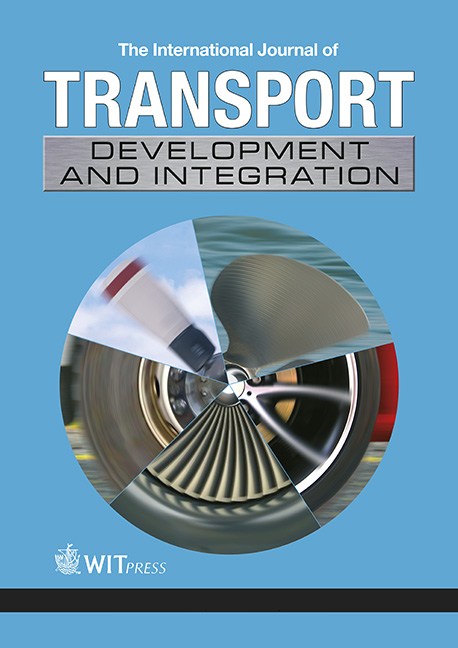The influence of driver’s psychological states on the safety perception of hydrogen electric vehicles
Price
Free (open access)
Volume
Volume 3 (2019), Issue 3
Pages
14
Page Range
207 - 221
Paper DOI
10.2495/TDI-V3-N3-207-221
Copyright
WIT Press
Author(s)
Hanlin Li, Ruth Welsh & Andrew Morris
Abstract
The environmental and sustainable problems caused by automotive exhaust emission have received more attention than ever. Innovative vehicle technologies, such as hydrogen fuel cell and electric vehicles (EVs), have been developed a long time ago to cope with the problem. Public acceptance of these EV technologies is critical to their successful replacement of the internal combustion (IC) engine vehicles and thus reduce the emissions. Previous researches had shown that the main barriers were the lack of support infrastructures, high vehicle purchase cost and vehicle reliability with respect to safety. However, studies into the public safety perception of hydrogen-fuelled vehicles have still been limited to date. In this article, a quantitative survey was developed to investigate the public safety concerns of three types of vehicle powertrain: the IC engine, the hybrid electric and the solely EV. The study indicates the root cause of the low safety perception at present. The survey results also indicate that driving freedom is nowadays not just a problem of infrastructure only but is gradually becoming a psychological issue in terms of increased driver’s mental stress, and thus, the overall driving safety is affected. Furthermore, this article states the existence of an evaluation chain to determine the driver’s safety perception. In the end, this article proposed a comprehensive framework of the negation of driver’s safety concerns regarding the hydrogen-fuelled EV, based on the results from the survey and a review of psychological effects. This framework intends to explain the perceived safety perception from a wider angle with some depth.
Keywords
electric vehicle, hydrogen fuel, psychological factors, safety perception.




